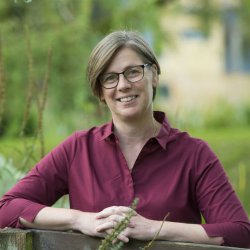Mathematical modelling of herpes simplex virus transmission in 2- and 3- dimensions
This is an exciting opportunity to undertake an EPSRC-funded PhD that will combine experimental work with mathematical modelling to describe the transmission of the human pathogen herpes simplex virus (HSV) in human cells and tissue models, and develop a comprehensive tool for assessing the parameters that influence virus transmission.
Start date
1 January 2023Duration
3.5 yearsApplication deadline
Funding source
EPSRC Doctoral Training PartnershipFunding information
Enhanced EPSRC stipend (£19,062 per annum for 2022-23, with annual increments based on inflation) and fees covered. Funding also includes a research training and support grant of £3,000 for the duration of the studentship.
About
HSV is the causative agent of cold sores, genital herpes, and a range of serious diseases such as keratitis, encephalitis and neonatal herpes. It transmits between cells in one of two ways – cell-free virus or direct cell-to-cell transmission - but the relative contribution in the host is not known. In the lab, transmission of HSV spread is measured by plaque formation on 2D cell monolayers, and can be assessed in the 3D structure of the host tissue using model systems.
This project will combine experimental data of virus replication and spread with mathematical modelling that takes into account a wide range of parameters and will be jointly supervised by experts in herpesvirology (Elliott) and mathematical modelling (Rocco). The student will split their time between lab work where they will be trained in tissue culture, virology and advanced imaging techniques, and computational work, where the modelling approach will rely on the construction of dedicated ordinary differential equations models in the first instance, and agent-based models at later stages.
The goal of this project is to develop a comprehensive modelling tool describing viral infection in different scenarios, dependent on experimentally determined parameter values, and accounting for possible therapeutic interventions.
Whilst experience in virology and tissue culture will be an advantage, any highly motivated individual with a keen interest in developing their research in the mathematical biology of virus infection is encouraged to apply. Applicants must have at least a 2:1 degree in a relevant subject and an A-level in Maths.
This is a joint project between virology based in the Department of Microbial Sciences, and mathematical modelling based in the Department of Physics. This studentship is one of several that will start in the Section of Virology in January 2023.
Why the University of Surrey?
The University of Surrey and our collaborative partners provide a vibrant, interdisciplinary research environment, with access to state-of-the-art facilities. We see our postgraduate researchers as an integral part of our research community, collaborating and innovating together with academics at all levels. We want the most talented researchers from diverse backgrounds to join us, bringing new ideas and perspectives. We will help you make the most of your potential, removing barriers where we can and supporting you with dedicated career guidance. We offer generous funding packages, sector-leading researcher development training and mentoring, and dedicated employability support.
Whatever your aspirations, Surrey is where research careers are launched and nurtured.
References
1. Jones J, Depledge DP, Breuer J, Ebert-Keel K, Elliott G. Genetic and phenotypic intrastrain variation in herpes simplex virus type 1 Glasgow strain 17 syn+-derived viruses. J Gen Virol. 2019;100(12):1701-13. PMID: 31661047.
2. Graw F, Perelson AS. Modeling Viral Spread. Annu Rev Virol. 2016;3(1):555-72. PMID: 27618637.
Eligibility criteria
This is for UK candidates, only UK fees will be covered. Applicants are expected to have a good honours degree (first or upper second) or a masters degree in an appropriate discipline, and an A-level in maths.
English language requirements
IELTS Academic: 6.5 or above (or equivalent) with 6 in each individual category.
How to apply
Applications should be submitted as early as possible via the Biosciences and Medicine PhD programme page on the "Apply" tab. Please clearly state the studentship title and supervisor on your application.
Once you have completed and submitted your application, please send an email to Professor Gill Elliott (g.elliott@surrey.ac.uk) confirming you have applied.
Studentship FAQs
Read our studentship FAQs to find out more about applying and funding.
Application deadline
Contact details

Studentships at Surrey
We have a wide range of studentship opportunities available.

